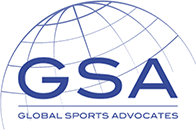 The anti-doping lawyers from Global Sports Advocates help talented athletes across all sports protect their right to compete when they face accusations of intentionally taking prohibited substances. Here, we discuss the scope of the National Women’s Soccer League’s (NWSL) Substance Abuse Policy as compared to the World Anti-Doping Code and what this means for NWSL athletes accused of a violation.
The anti-doping lawyers from Global Sports Advocates help talented athletes across all sports protect their right to compete when they face accusations of intentionally taking prohibited substances. Here, we discuss the scope of the National Women’s Soccer League’s (NWSL) Substance Abuse Policy as compared to the World Anti-Doping Code and what this means for NWSL athletes accused of a violation.
Do NWSL Players Follow WADA Rules?
Typically, professional soccer players across the world are required to comply with the World Anti-Doping Code as part of playing in a professional league that is a member of their respective national soccer federation, which, in turn, is a member of FIFA. However, this does not always hold true for professional soccer players in the U.S.
For example, even though the NWSL is a member of the United States Soccer Federation (USSF) – the designated national governing body for soccer in the U.S. and a member of FIFA – the World Anti-Doping Code does not apply to NWSL players. Instead, due to the unique structure of the NWSL and its need (under U.S. federal law) to collectively bargain all key terms of employment with the NWSL Players Association, the league, and its players collectively agreed to create their own set of rules and regulations surrounding the use of prohibited substances that all players are required to abide by called the NWSL Substance Abuse Policy. As a result, NWSL players, like athletes in other professional leagues in the U.S. such as the NFL, NBA, and NHL, are not beholden to the World Anti-Doping Code when playing in their respective leagues.
What Drug Testing Rules Apply to NWSL Players?
NWSL players must agree to regular drug testing as a condition of their employment. However, the authority conducting the test can affect what rules and sanctions apply. For example, players who are required to submit to drug testing requested by the NWSL would only be beholden to the NWSL Substance Abuse Policy. But, if an NWSL player is required to submit to drug testing conducted by any other drug testing organization such as the U.S. or Canadian Olympic Committees, FIFA, the United States Soccer Federation (USSF), or the Canada Soccer Association (CSA) – even while they are playing in the NWSL – they will be subject to the World Anti-Doping Code and its penalties.
As a result, NWSL players must be aware of who is authorizing the test in order to understand what rules apply. Both the types of substances that are banned and the sanctions for testing positive can vary significantly between regulations.
For example, one key area in the NWSL policy that differs from the World Anti-Doping Code is the use of cannabis. While the WADA Prohibited List includes marijuana and cannabinoids as substances that are prohibited in competition, the NWSL allows its athletes to use cannabinoids like CBD for pain management and recovery.
In fact, the NWSL even allows sponsorships from the cannabis industry. For example, Mendi, a CBD company started by Megan Rapinoe's sister, has partnerships with two NWSL teams, and Alex Morgan, who co-founded a CBD brand called Just Live, has also been vocal about using natural CBD products for mental and physical wellness.
The other key area where the NWSL Substance Abuse Policy differs from the World Anti-Doping Code is regarding sanctions. The penalties for violating the NWSL Substance Abuse Policy can vary from being suspended for a certain number of games all the way to terminating the player’s contract. This is significantly different from those sanctions under the World Anti-Doping Code (i.e., suspension from all sports for months or even years).
How NWSL Players Influence Anti-Doping Policies?
Unlike athletes subject to the World Anti-Doping Code, NWSL players have a greater influence over the anti-doping and drug regulations they must follow. Before the National Women's Soccer League decides to implement a new drug and alcohol policy, they must notify the NWSL Players Association (NWSLPA). If the NWSLPA wants to bargain over the proposed drug and alcohol policy, negotiations must be conducted in good faith. However, the NWSL can still implement the new policy within 60 days, even if the negotiations are not completed. This is explained in the 2022-2026 NWSLPA Collective Bargaining Agreement (CBA).
While WADA and its stakeholders seek input from athletes, there is no contractual obligation to negotiate. WADA can simply adopt whatever rules it and its stakeholders wish without any approval from athletes.
